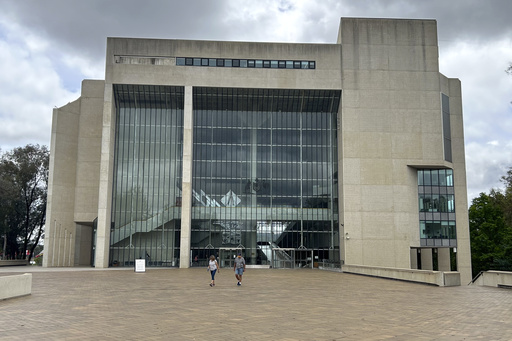
MELBOURNE, Australia — On Wednesday, Australia’s highest court delivered a significant verdict indicating that migrants cannot be compelled to wear electronic tracking bracelets or adhere to curfews enforced by law.
This decision poses a setback for the government, which had maintained that such laws were necessary for community safety. Legal representatives for the government previously contended that the imposition of curfews and tracking devices were reasonable measures aimed at safeguarding the public.
A panel of five out of the seven judges on the High Court determined that strict conditions affecting over 100 migrants, often based on their criminal histories, were unconstitutional, as these measures essentially serve as punishment. According to the constitution, the authority to impose punishment rests with judges and not with legislative bodies.
These regulations were set in place as part of emergency legislation enacted in December following a prior High Court decision which ruled that non-citizens could no longer be held in indefinite detention as an alternative to deportation. This earlier ruling arose from the case involving a stateless Rohingya individual and overturned a longstanding legal precedent that sanctioned indefinite detention for security concerns.
As a result of Wednesday’s ruling, the government can no longer utilize electronic tracking methods for the more than 200 non-citizens with criminal backgrounds who had been released and, due to various circumstances, could not be deported.
In response to the ruling, Home Affairs Minister Tony Burke announced plans to present new legislation to Parliament designed to create a revised framework for potentially employing monitoring devices and curfews. However, he did not elaborate on the specifics of these proposed changes.
Burke acknowledged that the court’s outcome was not the government’s desired result but stated they had been prepared for this scenario. He reiterated the government’s commitment to prioritize the safety and security of the Australian populace.
The case that reached the High Court was initiated by a 36-year-old stateless man known as YBFZ, originally from Eritrea. His family fled to Ethiopia in search of sanctuary from persecution due to their Jehovah’s Witness faith, eventually arriving in Australia as refugees in 2002.
His refugee status was revoked in 2017 due to a series of convictions, including burglary and reckless injury, which collectively formed a criminal record spanning over a decade. YBFZ remained in custody until 2023, coinciding with the High Court’s ruling against indefinite detention.
David Manne, representing YBFZ, hailed the court’s decision as a “significant victory” for fundamental rights and the rule of law in Australia. He emphasized the ruling reinforces the essential principle that neither citizens nor non-citizens should be punished through the removal of their fundamental rights to freedom and dignity.
Opposition lawmakers characterized the High Court’s decision as a significant “embarrassment” for the government. An opposition statement highlighted the potential implications of this ruling, indicating that 215 non-citizen offenders—including 12 convicted of murder, 66 identified as sex offenders, and 97 with assault convictions—will now be released into the community without any means of monitoring or enforcement of curfews.
